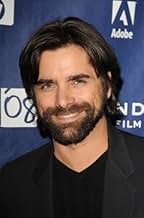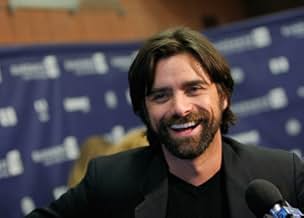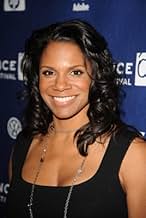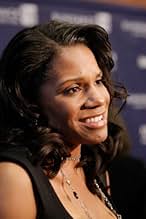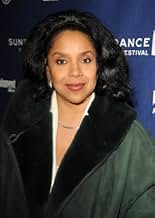AVALIAÇÃO DA IMDb
6,5/10
2,2 mil
SUA AVALIAÇÃO
Adicionar um enredo no seu idiomaAn African-American family struggles with poverty, racism, and inner conflict as they strive for a better way of life. Based on the play by Lorraine Hansberry.An African-American family struggles with poverty, racism, and inner conflict as they strive for a better way of life. Based on the play by Lorraine Hansberry.An African-American family struggles with poverty, racism, and inner conflict as they strive for a better way of life. Based on the play by Lorraine Hansberry.
- Direção
- Roteiristas
- Artistas
- Indicado para 3 Primetime Emmys
- 9 vitórias e 24 indicações no total
Sean 'Diddy' Combs
- Walter Lee Younger
- (as Sean Combs)
Ron Cephas Jones
- Willy Harris
- (as Ron C. Jones)
- Direção
- Roteiristas
- Elenco e equipe completos
- Produção, bilheteria e muito mais no IMDbPro
Avaliações em destaque
I thoroughly enjoyed this film version of "A Raisin in the Sun." The play is an important work of American literature and this adaptation brings it to life with emotional, engaging performances. The strongest portrayals come from Phylicia Rashad (Mama) and Audra McDonald (Ruth). This film includes some scenes that have been added from the original play, but these do not detract from the story; rather, they add context that readers of the play may miss. For instance, the play is set entirely in the Younger family's apartment. However, the film includes scenes set in a number of different locations around 1950's Chicago; this allows the film to show some of the racism that the Younger family faces as African Americans living in pre-Civil Rights America. The theme of racism is present in Hansberry's original play, but it may not be obvious to all readers. This film version does an effective job of illustrating this important theme so that viewers can understand the Youngers' story as one of struggle to overcome systemic discrimination.
I just seen the 1961 version before watching this TV movie... frankly speaking this version put me to sleep Puff daddy ain't Sidney Poitier all the cast just don't click as well as the original.
In 1959 Chicago, the Younger family lives in a small apartment with cockroaches and other problems, although they have done their best to make it look nice.
Walter works as a chauffeur for a white family that doesn't seem to acknowledge him as a human being. He is tired of "Yassir" and "Nossir" and wants to start his own business with friends Bobo and Willy.
Walter's mother Lena works as a maid and is loved by the little girl she cares for, but she can quit that job now since she is getting a $10,000 life insurance check after the death of her husband.
Walter's wife Ruth does people's laundry and raises their son Travis. Walter's sister Beneatha also lives with them, sharing a room with her mother. Travis sleeps on the couch in the living room.
What is the best way to spend the insurance money? Beneatha could use it to go to medical school. She is in college now, and she has two potential romantic partners--George, who comes from a rich family and is about as black as Carlton Banks, and language professor Joseph Asagai, who wants to teach Beneatha about Africa.
But Walter wants to open a liquor store. Imagine how that will go over with his devout Christian mother.
Lena sees a great opportunity to move into a better neighborhood. But the people next door to the house she finds are all white and don't want blacks moving in.
For the most part, this movie came across as the quality production ABC told us it was. The characters are strong and have values, but the question is how much will circumstances cause them to question those values.
Phylicia Rashad will surely be mentioned at Emmy time. She was outstanding, showing so much emotion when the time came to do it. It's the first time I ever saw her play a truly black character. I had to look closely to make sure it was actually her. Up until now, she has played attractive, young-looking women who could have been any ethnic group but happened to be dark-skinned.
Audra McDonald also did a very good job, and she was quite good-looking even here, with such a nice smile.
David Oyelowo showed so much passion for his heritage and for teaching the woman he cared about to have the same passion.
Not to take anything away from her performance, but Sanaa Lathan just got on my nerves. Perhaps that means she was doing everything right.
Sean Patrick Thomas did a good job showing another side of black culture; in the 1950s most blacks did not have money, and despite having dark skin, he seemed out of touch with the problems of his race, quite content with life.
Sean Combs didn't quite give the impression of quality that ABC had led me to expect. He was good, but almost always so bitter. I can't blame the writing, because Sidney Poitier played the role, and we all know he would have done a magnificent job with it. But Combs was good enough.
Bill Nunn had one fine scene as Bobo. He was in several other scenes, but he lived up to the promise of this film.
I liked John Stamos a lot on "Full House" (in fact, he was the reason I started watching the show in the first place). I liked him here. But surely not everyone will. He seemed out of place in this type of production. It was like watching Uncle Jesse facing Aunt Becky and trying to weasel out of having behaved in a racist way, mainly by explaining it was everyone else who wanted him to do it. But he was not threatening at all.
This is certainly worth seeing.
Walter works as a chauffeur for a white family that doesn't seem to acknowledge him as a human being. He is tired of "Yassir" and "Nossir" and wants to start his own business with friends Bobo and Willy.
Walter's mother Lena works as a maid and is loved by the little girl she cares for, but she can quit that job now since she is getting a $10,000 life insurance check after the death of her husband.
Walter's wife Ruth does people's laundry and raises their son Travis. Walter's sister Beneatha also lives with them, sharing a room with her mother. Travis sleeps on the couch in the living room.
What is the best way to spend the insurance money? Beneatha could use it to go to medical school. She is in college now, and she has two potential romantic partners--George, who comes from a rich family and is about as black as Carlton Banks, and language professor Joseph Asagai, who wants to teach Beneatha about Africa.
But Walter wants to open a liquor store. Imagine how that will go over with his devout Christian mother.
Lena sees a great opportunity to move into a better neighborhood. But the people next door to the house she finds are all white and don't want blacks moving in.
For the most part, this movie came across as the quality production ABC told us it was. The characters are strong and have values, but the question is how much will circumstances cause them to question those values.
Phylicia Rashad will surely be mentioned at Emmy time. She was outstanding, showing so much emotion when the time came to do it. It's the first time I ever saw her play a truly black character. I had to look closely to make sure it was actually her. Up until now, she has played attractive, young-looking women who could have been any ethnic group but happened to be dark-skinned.
Audra McDonald also did a very good job, and she was quite good-looking even here, with such a nice smile.
David Oyelowo showed so much passion for his heritage and for teaching the woman he cared about to have the same passion.
Not to take anything away from her performance, but Sanaa Lathan just got on my nerves. Perhaps that means she was doing everything right.
Sean Patrick Thomas did a good job showing another side of black culture; in the 1950s most blacks did not have money, and despite having dark skin, he seemed out of touch with the problems of his race, quite content with life.
Sean Combs didn't quite give the impression of quality that ABC had led me to expect. He was good, but almost always so bitter. I can't blame the writing, because Sidney Poitier played the role, and we all know he would have done a magnificent job with it. But Combs was good enough.
Bill Nunn had one fine scene as Bobo. He was in several other scenes, but he lived up to the promise of this film.
I liked John Stamos a lot on "Full House" (in fact, he was the reason I started watching the show in the first place). I liked him here. But surely not everyone will. He seemed out of place in this type of production. It was like watching Uncle Jesse facing Aunt Becky and trying to weasel out of having behaved in a racist way, mainly by explaining it was everyone else who wanted him to do it. But he was not threatening at all.
This is certainly worth seeing.
6/10 - a movie based on an award-winning play that just didn't quite capture the true feeling of its source material
I think the movie was pretty good. The actors were great. They knew what was happening. The book and the movie are very similar. Some scenes are added or some don't show up. For example in the movie it gives more details than the book. It shows more and in the book it mostly takes place in the Younger's apartment. In the movie the setting is not just in the apartment. The ending in the book is different from the ending in the movie but besides that I liked the movie/book.
Você sabia?
- CuriosidadesPhylicia Rashad's sister, Debbie Allen, played "Beneatha Younger" in the Broadway musical, "Raisin".
- Erros de gravaçãoWhen they are packing up the apartment, Momma is working on putting sticks around a small plant to protect it to wrap it. The number and location of the sticks are not in sync with the timing.
- ConexõesFeatured in The 60th Primetime Emmy Awards (2008)
Principais escolhas
Faça login para avaliar e ver a lista de recomendações personalizadas
Detalhes
- Data de lançamento
- País de origem
- Idioma
- Também conhecido como
- A Raisin in the Sun
- Locações de filme
- Empresas de produção
- Consulte mais créditos da empresa na IMDbPro
Contribua para esta página
Sugerir uma alteração ou adicionar conteúdo ausente


